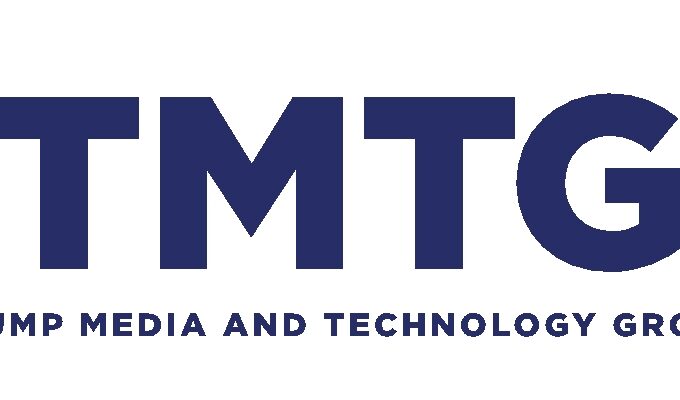
Biden Administration Unveils 31 Regional Tech Hubs to Boost American Innovation and Job Creation
In a significant move towards promoting innovation, strengthening manufacturing capabilities, and creating employment opportunities across the nation, the Biden-Harris administration has officially designated 31 communities as Regional Innovation and Technology Hubs (Tech Hubs). This strategic initiative is part of President Biden’s vision for economic growth and his Investing in America Agenda, which aims to foster inclusive prosperity and strengthen the United States’ position in the industries of the future.
Driving Technological Growth Nationwide
These 31 Tech Hubs, spread across 32 states and Puerto Rico, will serve as catalysts for investment in technologies crucial for economic expansion, national security, and job generation. They are the outcome of the Tech Hubs program, authorized by the CHIPS and Science Act and signed into law by President Biden in August 2022. Underlying this effort is a commitment to reshape the economic landscape by decentralizing growth, shifting from a few coastal cities towards making every region a hub of innovation.
The areas of focus for these Tech Hubs encompass a wide range of innovative industries, including semiconductors, clean energy, biotechnology, quantum computing, artificial intelligence, and more. By uniting private industries, state and local governments, educational institutions, labor unions, tribal communities, and non-profit organizations, these Tech Hubs will compete for implementation grants of up to $75 million. These funds will be directed towards further developing these sectors, fortifying supply chains, and fostering job creation.
Strategic Investment for Economic Competitiveness
President Biden’s Investing in America agenda has, since its inception, attracted significant private-sector investments, particularly in clean energy and manufacturing. To date, private companies have announced investments exceeding half a trillion dollars, notably in semiconductor manufacturing, electric vehicle and battery manufacturing, and biomanufacturing. These investments are deeply intertwined with the Tech Hubs’ focus areas, positioning the United States at the forefront of the global economy and enhancing national security.
One of the key objectives of the Tech Hubs program is to ensure economic growth is not confined to major metropolitan areas. These Tech Hubs have been carefully selected to reflect the full diversity of America, chosen from over 370 applications spanning 49 states and four territories. Over 75% of these Tech Hubs significantly benefit small and rural areas, with more than three-quarters offering direct support to historically underserved communities.
Moreover, these Tech Hubs emphasize collaboration with labor unions, facilitating the creation of good-paying, union jobs in the communities where the workforce resides. Complementing the 31 Tech Hubs, the Department of Commerce is awarding 18 coalitions Strategy Development Grants. These grants will enable the development of economic plans, enhancing competitiveness for future rounds of the Tech Hub program.
The Tech Hub Designations
The Tech Hubs, distributed across various states, aim to catalyze growth in critical industries:
- Enabling Safe and Effective Autonomous Systems: Several Tech Hubs, such as the Tulsa Hub for Equitable & Trustworthy Autonomy, the Ocean Tech Hub, and the Headwaters Hub, focus on developing safe and effective autonomous systems for various applications.
- Maintaining Our Quantum Edge: Tech Hubs like Elevate Quantum Colorado and The Bloch Tech Hub strive to strengthen the region’s global leadership in quantum information technology and quantum computing.
- Advancing Biotechnology in Drugs and Medical Devices: Tech Hubs including the Advanced Pharmaceutical Manufacturing Tech Hub, ReGen Valley Tech Hub, iFAB Tech Hub, and Kansas City Inclusive Biologics and Biomanufacturing Tech Hub aim to advance biotechnology in drugs and medical devices.
- Advancing Biotechnology Precision and Prediction: Tech Hubs like the Wisconsin Biohealth Tech Hub, Baltimore Tech Hub, Birmingham Biotechnology Hub, Greater Philadelphia Region Precision Medicine Tech Hub, and Minnesota MedTech Hub 3.0 focus on advancing biotechnology precision and prediction.
- Accelerating America’s Clean Energy Transition: Gulf Louisiana Offshore Wind Propeller, Intermountain-West Nuclear Energy Tech Hub, SC Nexus for Advanced Resilient Energy, South Florida Climate Resilience Tech Hub, and New Energy New York (NENY) Battery Tech Hub are working to accelerate America’s transition to clean energy.
- Strengthening Our Critical Minerals Supply Chain: Nevada Lithium Batteries and Other EV Material Loop and Critical Minerals and Materials for Advanced Energy (CM2AE) Tech Hub aim to strengthen the critical minerals supply chain.
- Regaining Leadership in Semiconductor Manufacturing: Tech Hubs like Texoma Semiconductor Tech Hub, Corvallis Microfluidics Tech Hub, NY SMART I-Corridor Tech Hub, and Advancing Gallium Nitride (GaN) Tech Hub are dedicated to regaining leadership in semiconductor manufacturing.
- Growing the Future of Materials Manufacturing: Sustainable Polymers Tech Hub, Forest Bioproducts Advanced Manufacturing Tech Hub, American Aerospace Materials Manufacturing Tech Hub, and Pacific Northwest Mass Timber Tech Hub aim to drive innovation in materials manufacturing.
Full Government Support for Tech Hubs
To ensure the success of these Tech Hubs, the federal government is committed to providing comprehensive support. The Tech Hubs will have access to follow-on funding from various federal agencies, technical assistance from departments such as Transportation, Agriculture, and the Small Business Administration, exclusive branding, assistance in attracting foreign direct investment, and help with export market access. They will also receive technical assistance and program support on intellectual property issues.
In a historic move, the Biden-Harris administration is heralding a new era of innovation and economic growth that reaches every corner of the United States. The Tech Hubs initiative underscores the commitment to make America a global leader in the industries of the future, ensuring that innovation, job creation, and economic competitiveness are not confined to a select few regions but are accessible to all.
This Tech Hubs program represents a pivotal step towards realizing the Biden-Harris administration’s vision of fostering innovation, strengthening American competitiveness, and generating job opportunities in every corner of the country.





